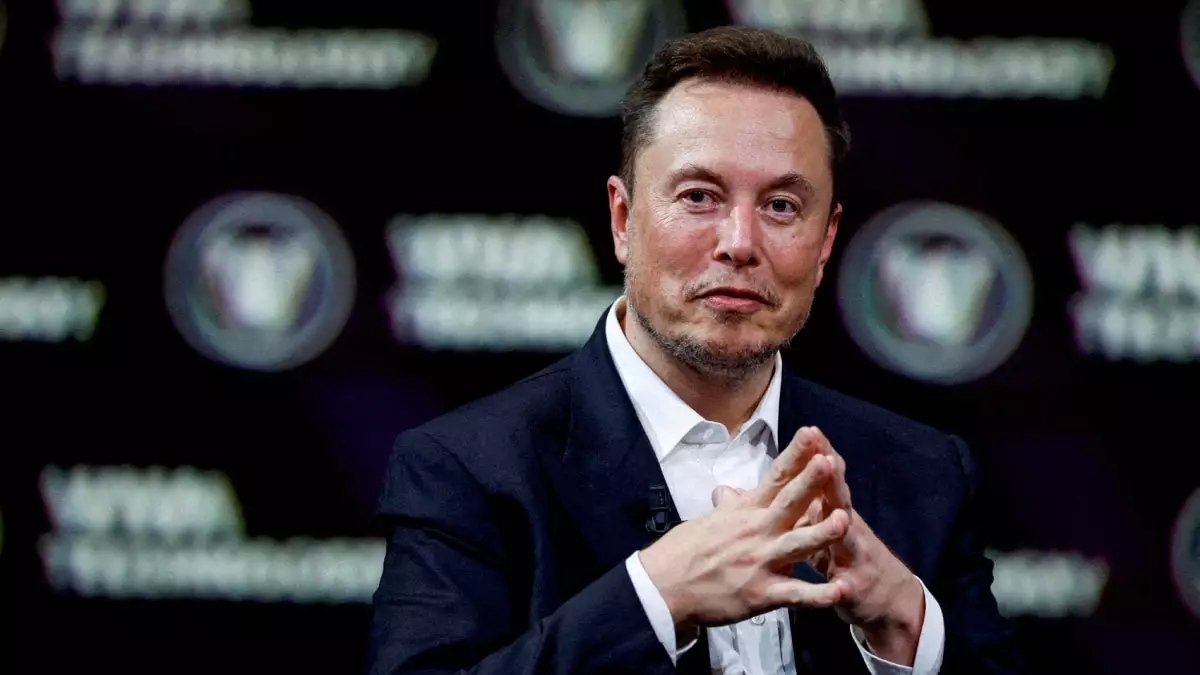In a recent conversation with Israeli Prime Minister Benjamin Netanyahu, Elon Musk took a firm stand against accusations of antisemitism. Musk, the CEO of Tesla and owner of the social media platform X, defended himself, stating his stance against hate and conflict of any kind. The discussion took place at Tesla’s offices in Fremont, California, and was streamed on X. The context for this conversation lies in a growing dispute between Musk and the Anti-Defamation League (ADL), a Jewish civil rights group that Musk accuses of undermining X’s advertising revenue. The ADL, along with other civil rights organizations, has raised concerns about extremist content on the platform after Musk took over and dismissed most of its staff. Musk’s threat to sue the ADL and his support for the “BantheADL” hashtag have fueled the tension.
During the conversation, Musk highlighted the massive volume of content posted on X, stating that there are 100 to 200 million posts to the system each day. He acknowledged the difficulty of proactively policing such a vast amount of information but expressed his willingness to take steps to “deamplify” hate speech. Musk assured that X would not promote hate speech, as it is not in line with what the users want to see. While he claims to be “pro-free speech,” he firmly opposes any form of antisemitism. Netanyahu, however, expressed his hope that Musk would find ways to limit antisemitism and hate within the boundaries of the First Amendment, understanding the complexity of the task.
Prime Minister Netanyahu’s visit to Silicon Valley, California, was an attempt to dispel the notion that he is a pariah amidst the ongoing political unrest in Israel. He aimed to convince top tech executives that he is still a pro-business leader, despite the protests against his efforts to weaken Israel’s judiciary. Israeli tech workers in the Bay Area organized a demonstration against the judicial reforms, coinciding with Netanyahu’s arrival. The demonstration, consisting of several hundred individuals, expressed their dissatisfaction with his actions.
The meeting between Netanyahu and Musk was part of a day centered on artificial intelligence (AI), showcasing Israel’s AI capabilities. Netanyahu went on a tour of a Tesla factory and rode in an autonomous vehicle, emphasizing Israel’s commitment to AI. Departing from Tel Aviv, the prime minister stated his intention to attract Musk’s investments in Israel’s AI startups in the coming years.
An Israeli official traveling with Netanyahu clarified that the planning for the meeting with Musk predated the antisemitism controversy. Therefore, the prime minister did not view Musk as holding any antisemitic beliefs. During their discussion, Netanyahu raised concerns about hate speech amplification by “armies of bots” on X. Musk responded by revealing a forthcoming shift to a small monthly payment system. The aim is to deter bot operators by increasing the cost associated with their activities. As part of this move, Musk is considering requiring a new payment method for every bot created,.
During a round-table discussion on AI, OpenAI co-founder Greg Brockman addressed concerns related to user privacy. He mentioned that the crux of the issue lies in finding a balance between the market’s push for rapid AI deployment and the need to protect privacy. Initially, OpenAI planned to record and monitor all data related to its GPT models. However, due to public disapproval, the company shifted its approach and now focuses on privacy safeguards, such as data encryption and a policy of not utilizing customer information for technology development.
Netanyahu and Musk’s Relationship
According to an Israeli official, Netanyahu and Musk have been in contact since 2018 when Netanyahu hosted Musk at his Jerusalem residence. They share mutual interests and concerns regarding the benefits and risks associated with AI. The official added that they have discussed this emerging technology on several occasions via phone conversations. Their meeting in California serves as a testament to their ongoing connection.
The Future of AI in Israel
Netanyahu expressed his concerns during the discussion with Musk, highlighting the potential risks of unchecked artificial intelligence, such as the disruption of democracy, the manipulation of minds, the rise of crime syndicates, and AI-driven wars. He announced his intention to draft Israel’s AI policy in the coming months, signaling his commitment to addressing these concerns and shaping the future of AI within the country.
Elon Musk’s defense against accusations of antisemitism during his conversation with Prime Minister Netanyahu reflects his commitment to eliminating hate and conflict on X. The ongoing dispute with the ADL highlights the challenges of managing a platform with such enormous user-generated content. Netanyahu’s visit to Silicon Valley aimed to restore his reputation as a pro-business leader, despite the domestic protests against his judicial reforms. The meeting between Musk and Netanyahu showcased both Israel’s AI potential and the shared concerns about the risks associated with this emerging technology. Through their discussion, they sought to find a balance between AI deployment and safeguarding privacy. As Netanyahu works on drafting Israel’s AI policy, the future of AI in the country remains uncertain but promising.


Leave a Reply